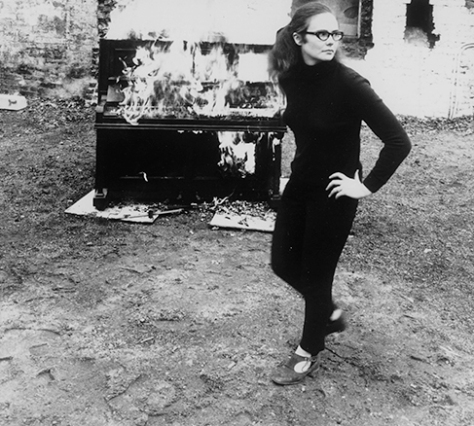This is a song I always listen to when I go on a trip, especially on planes.
Prof Ma
This is a song I always listen to when I go on a trip, especially on planes.
Prof Ma
“HOW IT WORKS:
Absolutely no sound is sent via MIDI, just digital signals known as event messages, which instruct pieces of equipment. The most basic example of this can be illustrated by considering a controller keyboard and a sound module. When you push a key on the keyboard, the controller sends an event message which corresponds to that pitch and tells the sound module to start playing the note. When you let go of the key, the controller sends a message to stop playing the note.
Of course, the MIDI protocol allows for control over more than just when a note should be played. Essentially, a message is sent each time some variable changes, whether it be note-on/off (including, of course, exactly which note it is), velocity (determined by how hard you hit the key), aftertouch (how hard the key is held down), pitchbend, pan, modulation, volume or any other MIDI-controllable function.”
Source: (http://www.musicradar.com/us/news/tech/30-years-of-midi-a-brief-history-568009)
Here’s a video of Lazercat using a Roland Midi Controller and something else I don’t know the name of-
With MIDI there is so much variation between equipment. With so many different synthesis methods, programming systems, levels of user control and forms of sound manipulation available on different pieces of gear, it’s unlikely that any universal system for their control is possible. The variation inherent in MIDI embodies Kittler’s idea of the” instability of the notion of a medium” (192). Because of globalization and the INTERNET, including forums such as SoundCloud and Youtube, artists can easily influence and inspire each other. Thus our contemporary music becomes harder and harder to define. In what ways does the diversity and globalization of contemporary music culture affect the study or standardization of our time? Since we can’t black box, how do we gray box? Can our class discuss/brainstorm this?
-Lekha
Heeding Rodger’s call, let’s start listening to and watching some of the women electronic musicians mentioned in her essay (also check out Rodger’s Pink Noises web site):
Clara Rockmore plays The Swan by Saint-Saëns
More Rockmore performances on this playlist.
Maria Chavez performing live at Vinyl Edge Records in Houston, TX
More information and media at Chavez’s web site
Metamorphosis (2015) Mira Calix creates a new score for Mathew Clark/UVA collaboration with Paris Opera.
Annea Lockwood’s Performance Piano Burning, performed in London in 1968. Click on the image to hearing some of her compositions.
 Here is an interview with her at Sonic Acts XIII, 2010.
Here is an interview with her at Sonic Acts XIII, 2010.
TKO (2004) by Le Tigre
Listen to this:
then Read this:
http://rap.genius.com/Yung-lean-king-of-the-darkness-lyrics
Consider these 3 things:
1) The use of the standard iPhone text message ring noise
2) The lyrics that convey Yung Lean’s disillusionment with contemporary society (perhaps materialistic)
3) Weheliye’s idea of the post-human that “coarticulates the “human” with informational technologies
I am interested in Weheliye’s essay that reveals the interdependence of contemporary interpersonal communication and informational technologies within R&B music. I believe that his analysis and concepts can be applied to modern day electronic/ hip-hop music. Weheliye specifically talks about the vocoder and “cell-phone effect” in R&B music and argues that “the use of this sonic technology forms a part of a tendency to valorize older and obsolete machinery of musical production because they sound “warmer” and more human”, which is ironic given that vocoders [or the cell-phone effect] make the human voice sound robotic…” (513). He says that such effects create a sense of nostalgia of a more “technologically innocent” era. Instead this song uses the cell phone noise and other electronic sounds that, I believe, associate directly to our present time and the future. I disagree with Weheliye that that such technological sounds and effects can produce a sense of the past but instead point towards an even more technological, robotic future. What do you think?
Also- I found this on Soundcloud. https://soundcloud.com/dj-aakmael/billie-holiday-strange-fruit-dj-aakmael-house-mixx
I almost feel guilty for posting it because for me it completely tears the soul out of Billie Holiday’s original recording. But the mix relates to my above question relating to technological sound and the feeling of contemporaneity or the future.
– Lekha